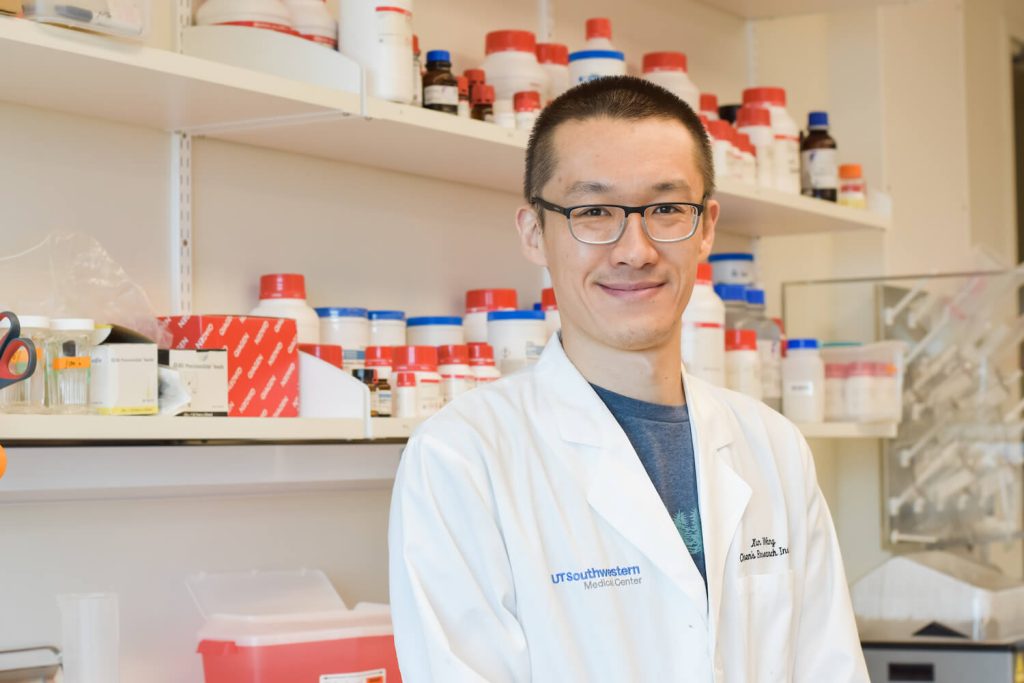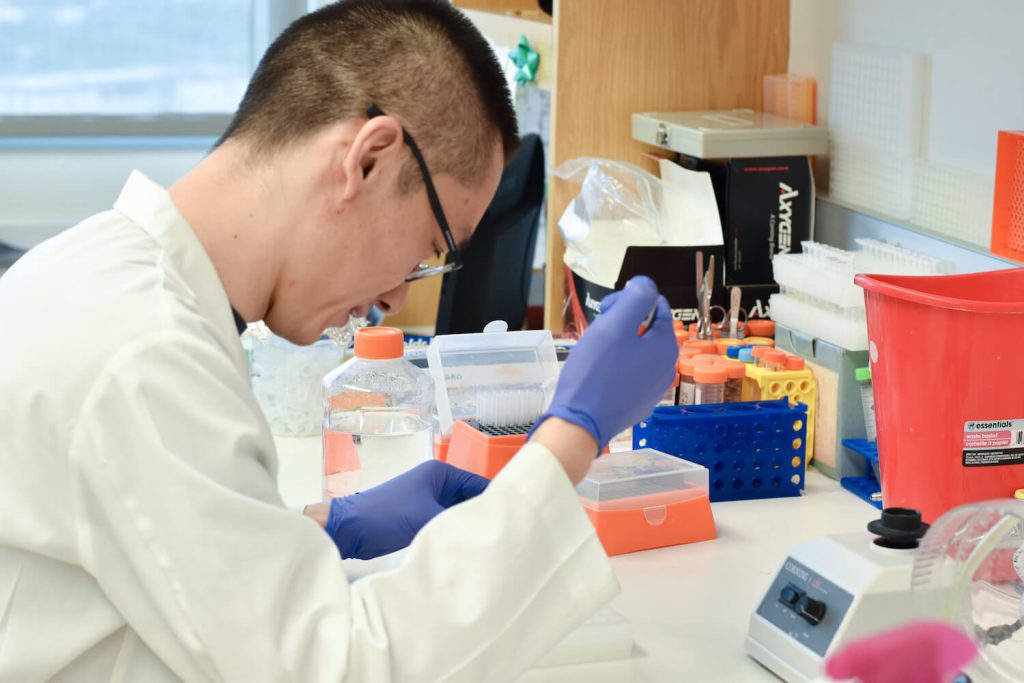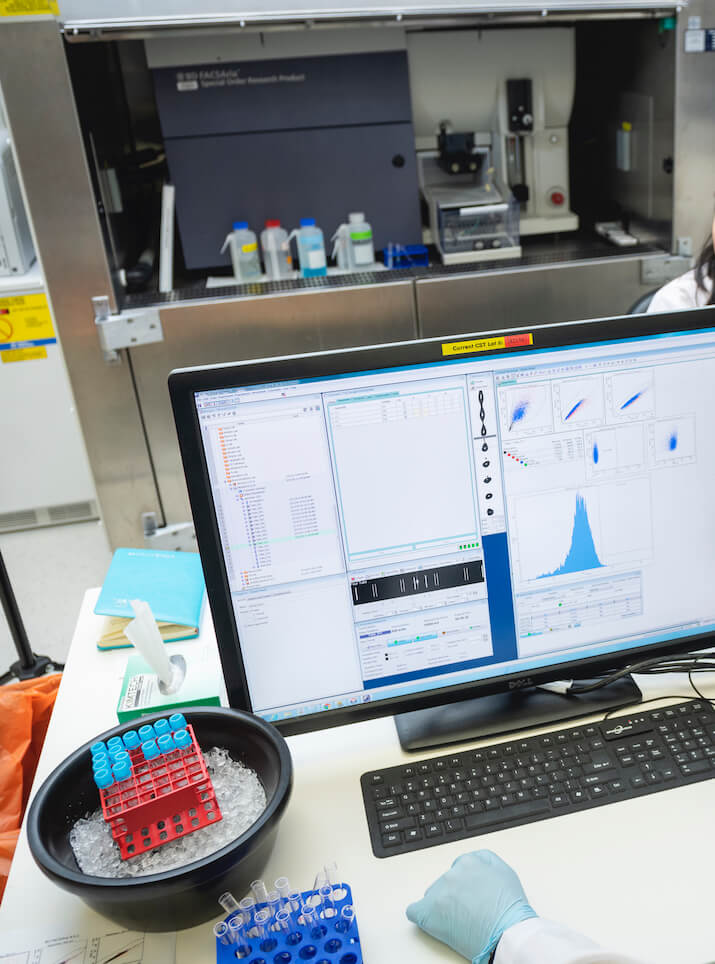July 28, 2020
Xun Wang, Ph.D., is a postdoctoral researcher in the Mishra lab who is studying how changes in mitochondria influence muscle stem cell maintenance and repair. His work will help us understand how to slow down or reverse age-associated declines in our skeletal muscles.
What are you researching?
I’m exploring how changes in our mitochondria — the organelles that generate the energy our cells need to function — affect muscle stem cells (MuSCs). These cells play an important role in maintaining our skeletal muscles and helping them recover after injury. As we age, the function of MuSCs declines, leading to muscle weakness and loss of muscle tissue. We do not understand why this happens, which makes it difficult to find strategies that will help us slow down or reverse these age-associated declines.
One manifestation of aging in human skeletal muscle is electron transport chain (ETC) impairment in the mitochondria. I am modeling ETC dysfunction in mice to study how MuSCs maintain themselves with age and identify the changes these cells undergo over time. I found that a functioning ETC is necessary for the survival of MuSCs and that the oxidative stress associated with ETC dysfunction triggers the removal of MuSCs from our muscles. These findings suggest that stem cells have novel pathways for monitoring the health of their mitochondria in order to make sure our muscles have high-quality stem cells ready to repair our tissues.


How did you become interested in your field?
Before getting my master’s and Ph.D., I was a physical therapist for the Shandong Water Sports Management Center in China. There, I had the opportunity to work with excellent professional athletes, including an Olympic gold medalist for a short time. As you might expect, I saw a lot of injuries during training and competitions, including those to skeletal muscles. We did what we could to help them and get them back to work quickly. Over time, I found myself interested in the different ways our skeletal muscles regenerate after injury. I wondered what we could do to better support and power skeletal muscles. That led me to pursue my degrees and my current track of study.
How did you end up in CRI?
I have studied the mitochondria and skeletal muscles since graduate school. I knew I wanted to continue my work in that area. I found several papers from Dr. Prashant Mishra and reached out to him once I saw he had established his lab. After talking with him, I found we had the same interests. When we met, I was impressed by his ideas and how personable he is, and I decided to join CRI after that. Dr. Mishra has become a great mentor to me, and his extensive experiences in mitochondrial dynamics benefit my work. He gives great experimental direction but also allows me the freedom to pursue the scientific questions I’m interested in.


What’s your favorite spot in CRI?
It may sound strange, but I enjoy spending time in CRI’s core facilities. Not many places have our setup with four dedicated cores to help with sequencing, mouse model creation, metabolomics, and flow cytometry. The staff in our facilities are kind and also experts in their areas. It is nice to have help with troubleshooting and receiving feedback on experimental design. I especially like that we have 24/7 access to the flow core facility and the high-speed sorting machines. It makes muscle stem cell isolation easy, and we never have long wait times.
What do you like to do when you’re not in the lab?
When I’m not in the lab, I like playing basketball with other CRI members. Zhimin Gu in the Xu lab invited me to join the team shortly after I started, and now, we meet every Friday at the Bryan Williams, M.D. Student Center to play after work. I also really enjoy watching live basketball games at the American Airlines Center in Dallas. My favorite players are Tim Duncan with the San Antonio Spurs and Dirk Nowitzki, who plays for the Dallas Mavericks. I saw Dirk’s last home game in 2019, though no one knew it was his last game at the time. It was a once-in-a-lifetime experience.

© 2025 Children’s Research Institute Dallas Texas | Privacy | Site Policies